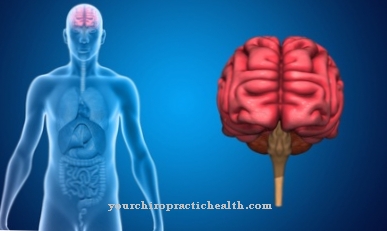Confidence describes the mental state of security with regard to one's own abilities, strengths, advantages and characteristics.
What is confidence?

In psychology, self-confidence describes the mental state of a person who puts the overall picture of himself in an overall positive light and considers himself to be a person with skills, strengths and merits. Thus, this inner attitude affects the appearance on the outside.
Self-confident people are confident of greater challenges, are often good at communicating with others and need little outside help to assert themselves and assert themselves in their environment. Self-confidence is therefore a desirable state for a mentally healthy person.
It can develop from a healthy feeling of self-worth, which must be developed and nurtured as the first step towards more self-confidence. The prerequisite is the recognition of one's own personality, be it through one's own thinking process or the attribution of characteristics through external influences.
The concept of self-confidence cannot just stand for a single person; even a group of several people can demonstrate self-confidence in their appearance.
Function & task
Self-confidence is the result of many years of self-reflection, which is also the reason why many young people still have difficulties with self-confidence in every situation. Experiences must first help them to get to know their own personality and to perceive it as valuable.
Self-confidence can also develop through belonging to a group whose values and characteristics are accepted and accepted as one's own. The result of self-confidence is a goal-oriented, confident and fear-free demeanor that easily moves other people to follow this idea.
Since self-confidence also goes hand in hand with experience, self-confident people know what to expect in everyday situations. They develop a safe way of dealing with it and learn to trust in themselves, which in turn gives them a sense of security. It is the combination of trust and security that keeps the self-confidence alive and ensures that you approach new situations with the usual old self-confidence, because you are in a trustworthy and secure mental state and thus remain fear-free.
An important job interview, a presentation at work, the birth and upbringing of a child and similarly demanding life situations are usually dealt with better and more calmly through an attitude of self-confidence than a person with self-doubt would fare in the same situation.
Illnesses & ailments
A person's self-confidence arises over many years and requires extensive personal development. It is therefore regarded as a state of mental health and almost cannot arise from (mental) illness.
Of course, not only mental illnesses, but also physical problems of all kinds can reduce self-confidence because they attack people's self-esteem. Low self-esteem is one of the biggest barriers to self-confidence and is particularly common in teenagers and young adults.
The lack of self-confidence at this age, combined with a lack of self-esteem, can lead to decisions being made that are intended to improve the ability to like yourself - but often the consequences are severe. Eating disorders are a consequence of this cycle, because they can arise, among other things, because those affected develop a lack of self-esteem through their outward appearance and lose their realistic view of their own body. You see a distorted picture of yourself and react to it, but no longer to reality.
On the other hand, excessive self-confidence that stems from self-esteem is referred to as pathological narcissism. Here, too, the person concerned loses touch with reality, as his or her subjective self-esteem conveys an overly positive image. Narcissism manifests itself, among other things, through excessive self-confidence.
A lack of self-confidence is not only a problem at a young age, it also becomes relevant again with increasing age and can lead to very similar clinical pictures as in puberty. It is estimated that around the age of 60 a person's self-confidence is highest, as he has been able to develop his self-worth well up to now.
However, seniors from the age of 60 can have a difficult time maintaining this self-confidence due to various social and health influences. In adulthood, self-confidence is strongly shaped by social influences, for example professional or family successes and failures, friendships and relationships. Since many socially desirable factors tend to be stressful in old age, self-confidence is more difficult in older people. In societies in which age is viewed less negatively than in most western countries, this is completely different. Here aging people perceive themselves as the center of society and often experience increasing self-confidence as a result.



























